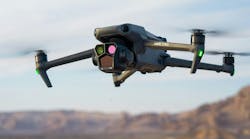Each law enforcement agency has different technology needs. Some communities may benefit from a drone program, and others might benefit more from body-worn cameras or an investigations database. When it comes to implementing technology, smaller agencies can and should leverage their unique abilities as smaller departments to modernize and upgrade technology to fit their needs.
Managing technology upgrades and installations requires foresight, planning, scheduling, and so much more. Large agencies may have project managers to monitor and assist significant technology growth, but smaller agencies may have staff that are masters of many things. It is not uncommon to find a dispatcher or patrol officer in charge of one of the agency's tech systems. By embracing their way of implementing technology that best serves the agency and the community, a smaller agency can integrate the most beneficial technology.
Small agencies are the majority
Agency-wide technology requires planning from the purchase through the implementation and cutover. The agency's size plays a significant factor in determining the technology needed. In 2018, the number of agencies with fewer than ten full-time equivalent (FTE) sworn officers was 7,055, or approximately 40% of all state and local law enforcement agencies in the United States. The same 2018 data show that agencies under 100 FTE officers make up approximately 92% of the agencies in the US, and those with over 1,000 FTE sworn officers accounted for less than 1% of the agencies overall in the US.
Smaller law enforcement agencies have many of the exact needs of larger agencies. Still, they may lack the technology staff to implement programs and install equipment, often relying on vendors or third-party consultants. Their size allows smaller agencies to transition to new technology more quickly. There are fewer layers through the approvals needed for large projects, even without a large staff dedicated to the project.
Small agency benefits
At first blush, the larger agencies may have more access to technology upgrades or new installations. The needs may differ, but small agencies still want and need technology. And their small size may help them realize the benefits of technology more quickly than their larger counterparts.
· Scale and complexity of operations
Agencies with lower staff numbers and restrictions must be creative when choosing and planning technology. Smaller agencies can also quickly purchase, implement, and test technology. These agencies typically operate within a more confined geographical area and handle fewer incidents than their larger counterparts. As a result, they may opt for simpler, more streamlined technology solutions that cater to their specific needs without unnecessary complexity.
· Budgeting considerations
Smaller law enforcement agencies may need fewer technology systems than larger neighboring agencies. For example, smaller agencies have fewer specialty units than larger agencies, reducing the need for technology related to those units and letting the smaller agency focus on the technology that helps the agency provide policing in the community. Departments with fewer sworn officers can benefit from modernizing policing through technology, such as using drones to search an area or artificial intelligence to answer administrative phone lines. The key is using technology where the agency will benefit most.
· Training and support infrastructure
Smaller agencies may need more resources to provide comprehensive training and support for technology adoption. However, they can leverage partnerships with vendors, government agencies, and regional training centers to access training opportunities and technical support. Sometimes, the agency may have staff members who are more adept at technology and can train others, including new hires, after the initial training period. This also happens in larger agencies, but the smaller agencies have fewer staff, making the training process faster.
· Data management and analysis
Smaller agencies may have a different volume of data to manage than larger agencies, but every policing agency can benefit from adopting data management and analytics solutions. These tools help identify patterns, trends, and potential threats within their communities, enabling more targeted and effective law enforcement strategies.
· Interoperability
Smaller agencies look to interoperability when budgetary or other constraints limit their ability to implement needed technology. Not only is cost-sharing a benefit, but the shared data and resources can help a small department stay updated with the technology required to manage employee retention and keep their community safe.
The future of policing relies on technology
Large and small law enforcement agencies recognize the importance of technology in modern policing. While large agencies may have more resources and infrastructure to support their technological initiatives, smaller agencies can still leverage technology to enhance their capabilities within their unique operational constraints.
The many changes in law enforcement technology can leave smaller agencies feeling behind. Leveraging the skills of the staff, the needs of the community, the types of data and analytics required of the technology, and budgetary constraints allow small agencies to be adaptable during technology upgrades and installations – something that will continue to be needed with the ever-changing technology landscape.



